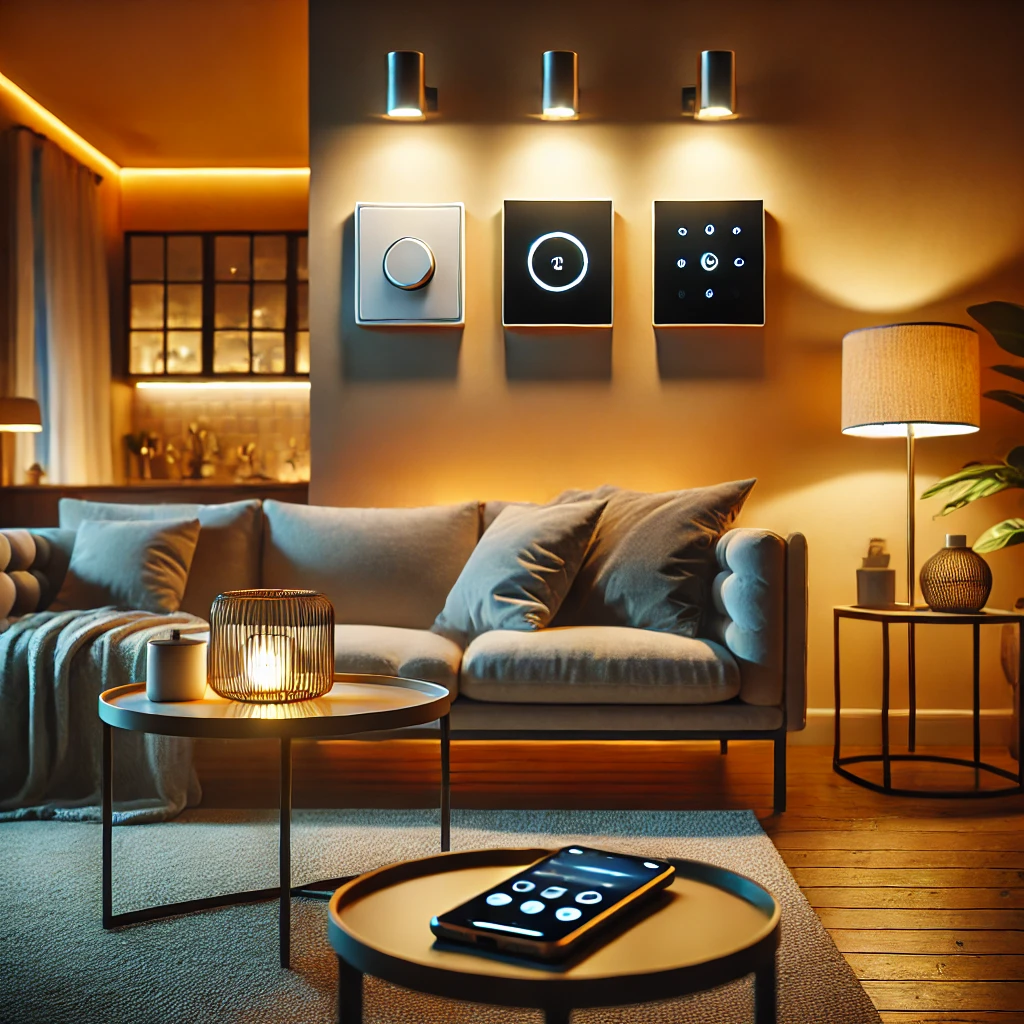Introduction to Smart Light Switches
In today’s fast-paced world, convenience and efficiency are paramount. Smart light switches have emerged as essential components of modern homes, offering unparalleled control over lighting. Imagine adjusting your home’s ambiance with a simple voice command or a tap on your smartphone. Not only do they bring luxury and ease, but they also contribute significantly to energy savings and enhanced home security. This comprehensive guide will walk you through everything you need to know about smart light switches, making it easy for you to make an informed decision.
What Are Smart Light Switches?
Smart light switches are advanced versions of traditional light switches, integrated with technology that allows remote control and automation. Connected to your home’s Wi-Fi or other wireless networks, they enable you to control lighting through mobile apps, voice commands, or automation systems. Unlike traditional switches, which are manual and offer no flexibility beyond turning lights on or off, smart switches bring a plethora of features such as dimming, scheduling, and remote access. Common features include remote control, voice assistant compatibility, scheduling, and automation. Many models offer energy usage reports, scene setting for mood lighting, and integration with smart home platforms like Amazon Alexa, Google Assistant, and Apple HomeKit.
Advantages of Smart Light Switches
Enhanced Convenience and Control
Control your lighting from anywhere. Whether you’re at home or on vacation, you can manage your lights effortlessly via your smartphone or voice commands.
Energy Efficiency and Cost Savings
Smart light switches allow you to set schedules, ensuring lights are not left on unnecessarily. Some models provide energy usage reports, helping you monitor and reduce electricity consumption.
Improved Home Security and Safety
Simulate occupancy by scheduling lights to turn on and off at different times, deterring potential intruders. Integrate with security systems for enhanced safety features.
Customization and Automation Capabilities
Create personalized lighting scenes for different activities like reading, dining, or watching movies. Use automation to adjust lighting based on time of day or specific triggers.
Types of Smart Light Switches
Wi-Fi Smart Light Switches
Wi-Fi switches are easy to install and use, requiring no additional hub. They offer direct control through your home’s Wi-Fi network but may experience connectivity issues if your network is unstable or overloaded.
Bluetooth Smart Light Switches
Bluetooth switches offer direct device-to-device communication, making them reliable in close-range scenarios. However, their range is limited, and they may not integrate well with other smart home devices.
Z-Wave and Zigbee Switches
These switches require a compatible hub but offer robust and reliable mesh networks, ideal for larger homes. They integrate seamlessly with other smart home devices, providing extensive control and automation options.
Hub-Based vs. Standalone Systems
Hub-based systems provide centralized control and integration with a wider range of devices. Standalone systems are simpler and easier to set up but may offer limited functionality and integration.
Choosing the Right Smart Light Switch for Your Home
Before purchasing, understand your home’s electrical setup. Ensure compatibility with existing wiring and load requirements. Different light fixtures have varying load requirements, so make sure your smart switch can handle the load type (LED, CFL, incandescent) to avoid malfunctions and ensure longevity. Look for features like dimming capabilities, energy monitoring, customizable scenes, and ease of installation. Prioritize models that offer firmware updates and robust customer support.
Top Smart Light Switch Brands and Models
Brands like Lutron, TP-Link, Leviton, and GE are leading the market with innovative smart light switches. Each brand offers unique features and caters to different needs and budgets. Explore in-depth reviews of top models such as the Lutron Caseta, TP-Link Kasa Smart, and Leviton Decora. Understand their features, pros, and cons to make an informed decision. Compare key features, performance metrics, and prices of leading models. Consider factors like ease of use, compatibility, and customer reviews to determine the best value for your investment.

